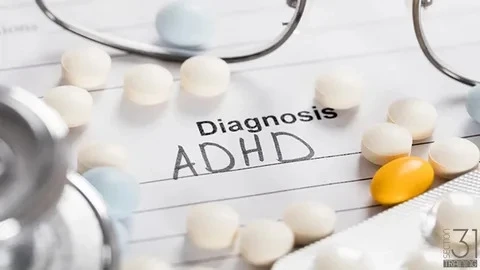A vital component of mental health and wellbeing is emotional control, particularly for those who suffer from Attention-Deficit/Hyperactivity Disorder (ADHD). An individual with ADHD may have major difficulties controlling their emotions, which can result in problems including impulsivity, mood swings, and trouble handling stress. We\'ll look at how ADHD medication can help with emotional regulation and improve mental health in general in this piece.
Comprehending Emotional Regulation and ADHD
Let\'s first examine how emotional regulation and ADHD are related before discussing the function of ADHD medication. ADHD is a neurodevelopmental disease marked by impulsivity, hyperactivity, and trouble paying attention. It also has an impact on emotional regulation, which is the capacity to control one\'s emotions and react to them in a sensible and healthy way.
People who have ADHD frequently encounter:
Strong Feelings: Individuals may struggle to control their emotions, which can result in strong emotions like rage, irritation, or enthusiasm.
Impulsivity: People who struggle with emotional regulation may act impulsively, failing to consider the repercussions of their actions.
Emotional Sensitivity: Individuals diagnosed with ADHD may be particularly vulnerable to emotional cues, such as rejection or criticism, which can set off intense emotional reactions.
Mood Swings:
People with ADHD may experience mood swings that range from pleasure to irritation.
These difficulties can affect many facets of day-to-day living, including as relationships, productivity at work or in the classroom, and general well-being.
ADHD Medication\'s Function in Emotional Control
Medication for ADHD, such as stimulants (such methylphenidate and amphetamine-based medications), is crucial in helping people with ADHD better control their emotions. How to do it is as follows:
Neurotransmitter Balance:
Dopamine and norepinephrine are two neurotransmitters that are vital for mood control and are linked to ADHD. Medication for ADHD improves emotional stability and balance by making these neurotransmitters more readily available in the brain.
Decreased Impulsivity:
Emotional dysregulation can be exacerbated by impulsivity, which is one of the main symptoms of ADHD. The use of ADHD medication reduces impulsivity, enabling people to deliberate more carefully when faced with emotional situations and to behave with greater thinking before acting.
Enhanced Focus and Self-Control:
ADHD medications help people better control their emotions by enhancing their focus and attention. They are able to recognize triggers, pay attention to their emotions, and employ coping mechanisms skillfully.
Stress Management:
Those who use ADHD medication may also find it easier to control their stress. Medication improves cognitive control and decreases distractibility, which helps people develop better coping strategies for stressful situations.
Strategies for Using ADHD Medication to Improve Emotional Regulation
While using ADHD medicine to help with emotional control can be very helpful, it\'s important to maximize its effectiveness using a variety of techniques:
Regular Medication Schedule:
Take your ADHD medication as directed by your physician. Maintaining steady neurotransmitter levels and steady emotional regulation throughout the day depends on the timing and amount of medications being taken consistently.
Keep an eye on and communicate:
Observe your mood while using ADHD medication. Tell your healthcare practitioner straight away if you have any changes in your mood or ability to control your emotions. To attain the intended level of emotional stability, changes to the type or dosage of medicine may be required.
Mix Therapy and Medication:
The physiological parts of ADHD can be addressed with medication, but therapy can offer useful tools and strategies for enhancing emotional regulation. Medication treatment can be enhanced by training in emotion management skills, mindfulness practices, and cognitive-behavioral therapy (CBT).
Factors related to lifestyle:
Be mindful of lifestyle choices like sleep, diet, and exercise that might affect one\'s emotional health. A healthy diet, regular exercise, and adequate sleep can promote mental wellness in general and improve the results of ADHD medication.
Learn and put into practice stress-reduction strategies include progressive muscle relaxation, deep breathing, and meditation. These methods can assist in calming the body and mind when emotional intensity is at its peak.
Pediatric Points to Remember
Parents, teachers, and mental health specialists should all be included in the decision to seek ADHD medication for kids and teenagers. Here are a few more things to think about:
Family Education:
Inform families about the effects of ADHD on emotional control as well as the function that medication plays in the treatment process. Promote candid dialogue and cooperation between educators, parents, and medical professionals.
Behavioral therapies:
Depending on the child\'s need, combine medicine with behavioral therapies. In addition to medication, parent education programs, school-based support, and social skills training help improve emotional control abilities.
Frequent Observation: Regularly check on the child\'s emotional health and response to medicine. Based on the child\'s, parents\', and instructors\' comments, adjustments might be required.
sum up
To sum up, medication for ADHD is essential for improving emotional regulation in people with ADHD. People with ADHD can have better emotional health and a higher quality of life by knowing how emotional dysregulation and ADHD are related, managing their medications appropriately, and using supportive techniques.



